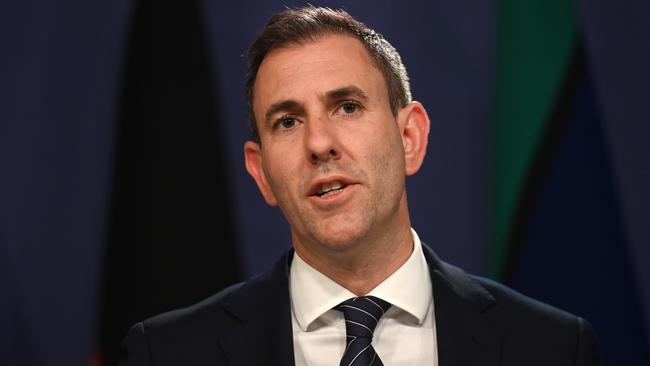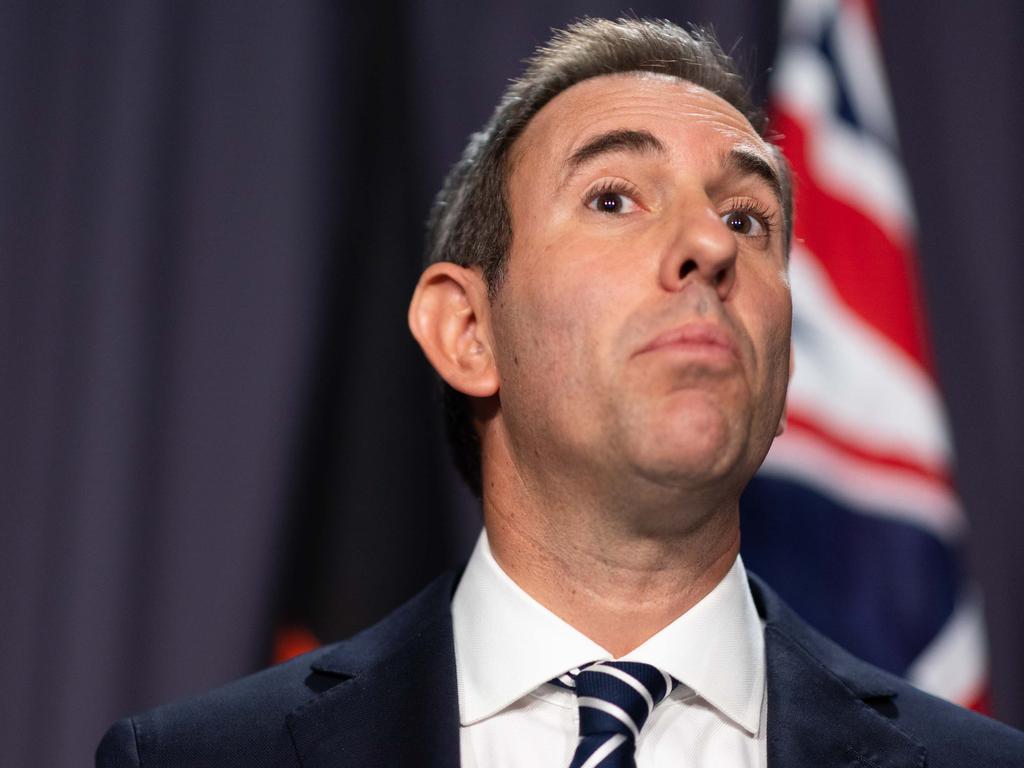Jim Chalmers to set superannuation equity test
Jim Chalmers will declare that ‘equity’, ‘sustainability’ and providing a ‘dignified’ retirement for workers must lie at the heart of a legislated purpose for superannuation.

Jim Chalmers will declare that “equity”, “sustainability” and providing a “dignified” retirement for workers must lie at the heart of a legislated purpose for superannuation, as he kicks off a national debate that will shape the future of Australians’ $3.3 trillion pool of super savings.
In a move that the Treasurer says will “end the super wars” but which promises to reignite years of fighting with the Coalition over how to define the purpose and goals of the nation’s retirement system, Dr Chalmers on Monday will unveil a proposal for an objective for superannuation that would be enshrined in law.
The wording of the proposal has far-reaching implications for how the enforced trillions in savings of current and future generations of workers are treated under the tax system, how and where that money is invested on their behalf, and what limits will be put on concessions for larger balances.
It will place rules on how Australians can access their superannuation before retirement, with the Albanese government keen to prevent any change in super regulations to give workers early access to their savings for purposes such as buying a first home.
The consultation paper will propose that “the objective of super is to preserve savings to deliver income for a dignified retirement, alongside government support, in an equitable and sustainable way”.
The consultation period will run until the end of March.
In extracts of his speech, seen by The Australian, the Treasurer said legislating an objective would “move to end the super wars once and for all” and “make sure that future changes to the system are compatible with its very objective”.
“Doing that requires that we embed super’s purpose into law,” Dr Chalmers said.
It would also fulfil an election commitment.
“Some of the most disastrous policy proposals we’ve seen in recent years – like allowing billions to be withdrawn from balances during the pandemic – have come about, in part, because our predecessors were navigating the super landscape without a compass,” he said. “This made us vulnerable to wrong turns and wrong decisions. It moved us further away from where we need to be: better living standards in retirement for as many Australians as possible.
“Legislating super’s objective will change that because for the first time we’ll have a true north – a shared goal that we can work towards together.”
Labor plans to use legislation to crack down on what it considers to be excessively large individual super balances that Financial Services Minister Stephen Jones has said “don’t seem to have any bearing or relationship with retirement income”, and are instead being used as a tax shelter for wealthier Australians’ estate planning.
Mr Jones has hinted that balances above $5m could be in the crosshairs – a proposal supported by major super fund players.
The concept of enshrining into law an objective for super has bipartisan support in theory, but in practice no agreement has been reached on the wording.
The Murray inquiry into the financial system in 2014 recommended that an objective be enshrined in legislation, and that it be “to provide income in retirement to substitute or supplement the age pension”.
The prime minister Malcolm Turnbull tried and failed to legislate that objective, amid strong opposition from Labor, which in 2015 also promoted an objective to reference a “dignified retirement”.
Opposition finance spokesman Stuart Robert has said the Coalition backed an objective that matched the 2014 financial system proposal.
Groups such as Industry Super Australia and ASFA have argued in favour of including terms such as “adequate” to describe the targeted levels of retirement income, as part of an argument in favour of higher rates of compulsory super.
Australian workers are compelled to put aside 10.5 per cent of their pre-tax income into super, lifting to 12 per cent by 2025. Labor’s policy platform includes a “pathway” towards 15 per cent, but has not made it a priority for the current parliamentary term.
The inclusion of words such as “dignified” and “equitable” are likely to attract scrutiny from the opposition and some experts who have previously objected to similar subjective terms that they have said are open to interpretation – and leave the system open to political interference.
Dr Chalmers said agreeing on a single, broadly accepted objective did not conflict with the government’s goal of using the trillions in retirement savings as leverage to promote key nation-building investments in areas such as affordable housing and the transition to clean energy. Critics have said this approach would run counter to a key test that super members’ money solely be invested in those member’s best financial interests.
“To my mind, defining super’s task as delivering income for retirement isn’t to narrow super’s role in our economy, it’s to elevate it, and broaden it,” the Treasurer said in his speech.
“A sharper focus on delivering for members requires that funds always invest in a way that secures the right risk-return profile – but it doesn’t preclude you from doing so in a way that befits a stronger economy.
“Those opportunities to achieve a double dividend – good results for super funds and members and good results for our nation – can only enhance the ability of super to meet its core objective.
“And that’s because a strong economy, and a strong society, is necessary to future-proof super – to protect its capacity to deliver strong member returns in the 2020s and beyond.”
Dr Chalmers said “if we fail to act in areas like affordable housing, climate, the care economy and digital, we will face the prospect of an economy that won’t sustain the growth that we need”.
“And this will all be to the detriment of a good, dignified retirement for as many Australians as possible,” he said.







To join the conversation, please log in. Don't have an account? Register
Join the conversation, you are commenting as Logout